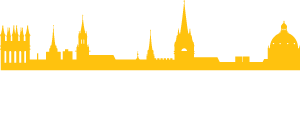
The new blended learning ACST Model (in partnership with FrontLine Communication)
- Interactive demonstrations and opportunities to practice
- Give and receive feedback in a safe learning environment
- Participant-led agenda using experienced facilitators and actors
Online workshop 18-19 September 2024
plus
- E-Learning (launch date-4 week prior to workshop)
- Up to 3 hours online e-learning (this is to be completed before the online workshop, but can spread out over the 4 weeks prior)
- Use Phone or Laptop, do you eLearning in breaks, travel or home, with most session under 10mins each.
- 20min 1-2-1 with course facilitator (to discuss learning objective and role-play scenario)
- 2 day zoom workshop (approx. 5 hours per day)
You will receive a unique Access code for e-learning platform. Your place on the 2-day workshop is not confirmed until you register onto the platform & book your 1-2-1
- 2-day online workshop requirements:
- Study-leave
- Access to broadband for the 2 days
- Desktop or laptop computer recommended, phone not recommended
- Cameras will need to be on at all times
- A private / confidential space (headphones & microphone if unable to assure privacy)
Feedback received
Overall experience of blended learning course 4.8/5 Relevance of course to role 4.9/5 Would you recommend this course 100%
Location: Virtual
CPD Credits: TBC
+ Venue
online
+ Speakers
Facilitators are provided through FrontLine Communication - all have received additional training in both Advanced Communication Skills facilitation and online delivery.
+ Course Programmes
to enable learners to
• increase awareness and improve communication skills
• identify strategies to improve quality of clinical communication
• review behaviours which inhibit good communication
• increase ability to deliver information effectively
• reflect on how they communicate with people affected by cancer
• share concerns and good practice
• improve and develop their communication skills through observation, practice and giving and receiving constructive feedback
• facilitate effective communication where there are language and /or cultural differences
• increase confidence in responding to difficult communication situations
Programme times etc will be available upon registration or request


